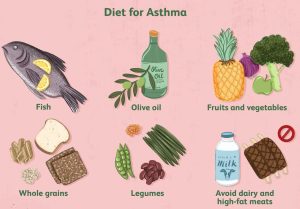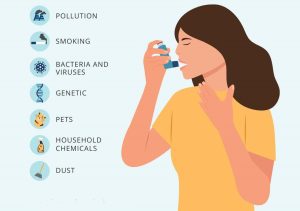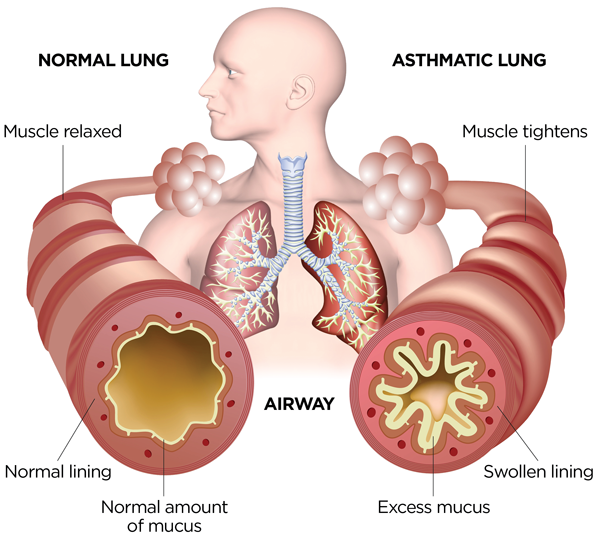Asthma is a non-communicable disease that affects both adults and children, but it is most common among children.
Asthma is caused by inflammation and muscle tightening around the airways, which makes it harder to breathe.
If you are asthmatic, you can experience mild or severe symptoms such as cough, shortness of breath, and chest tightness, but they can be managed with the right treatment.
If you are asthmatic, an asthma attack can happen when you are exposed to its triggers and your triggers can be very different from others.
Recently, the Nigerian Meteorological Agency warned individuals with asthma and other respiratory issues to be cautious of the weather conditions.
NiMET advised while predicting sunny and hazy weather for the North and North Central states of the country beginning from Wednesday, January 3, 2024.
NiMet also warned of cloudy and hazy weather, with slim chances of isolated thunderstorms over the coastal cities of Delta, Bayelsa, and Rivers states during the afternoon and evening periods.
It said, “Airline operators are urged to obtain updated weather reports from NiMet for effective planning of their operations.
“Individuals with asthma and other respiratory issues are advised to be cautious of the weather conditions.”

It added, “Slight dust haze is expected over the Inland areas of the South during the forecast period while, few clouds in the hazy atmosphere is expected over the coastal cities with slim prospects of isolated thunderstorms over parts of Delta, Rivers and Bayelsa states during the afternoon/evening period”.
Some other triggers are:
Strong soaps and perfume: Products such as strong odours from soaps, perfumes, household or industrial cleaners, air fresheners, and nail polishes and removers can trigger asthma symptoms.

Smoke: Smoke from tobacco, firewood, and other sources of air pollution are unhealthy for people with asthma. Experts advise asthmatic patients who smoke to quit smoking.
Pets: Furry pets can trigger an asthma attack, especially if you are allergic to them. So, it is advisable to keep pets out of your bedrooms, wash the pets, and cut the fur.

Mold: Breathing in mold can trigger an asthma attack whether or not you are allergic to mold. Indoor mold growth can be found in damp areas such as kitchens, bathrooms, and basements, or in areas where water damage has occurred.
Disinfectants: Disinfectants can trigger an asthma attack. Please stay away when disinfectants are being used.


